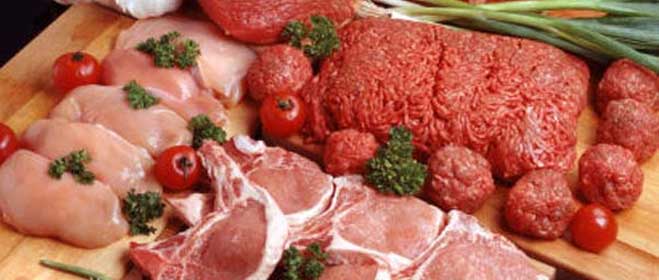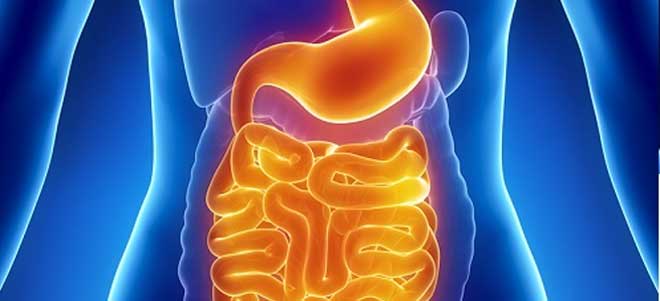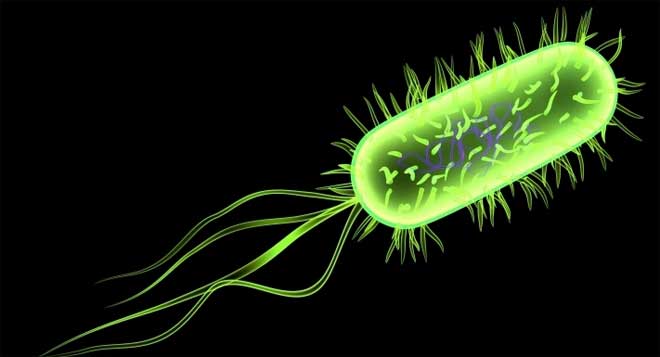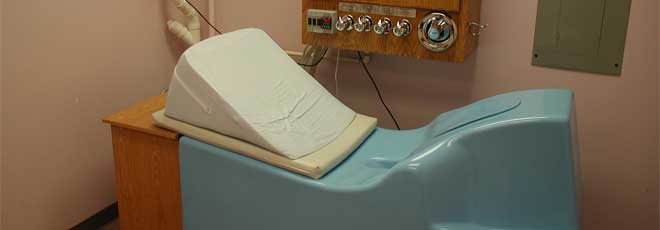
The health of the body depends on the health of the colon.
The health of our body depends to a large extent on the health of our colon. It is essential in any chronic disease (especially in diseases of the locomotor system) to cleanse the colon as a first step.This will prevent the introduction of new toxins. A strictly healthy diet will be mandatory.
The role of the intestinal wall is very important. It plays the role of a passageway and bilateral changes of the colon. It is renewed every 48 hours and the dead cells are evacuated with the faeces. The wall of our intestine forms a barrier against microbes and intestinal toxins.

Any alteration in the intestinal wall, e.g. due to poor dietary habits, can facilitate the passage of germs and toxins. through them. In this case, they will be able to follow two paths:
- Blood route, reaching the liver through the portal vein, which will filter, destroy and eliminate them.
- Lymphatic route
In the face of an occasional invasion of germs and toxins, the body's defence system kicks into action, decapitating any attempt at aggression. The problem arises when the aggression is chronic, especially in the case of constipation, where the permanent overflow of these toxins progressively weakens our natural defences..
An obstructed, dirty colon will be the site of a flora imbalance. The proportion of Escherichia coli bacteria, a minority in a normal state (15%), becomes a majority (85%) to the detriment of acyclophilus, which becomes a minority.

The effects of an unbalanced diet (too much meat, coffee, chocolate, antibiotics, tobacco, etc.) are an alkalinisation of the colon, favouring the development of Escherichia coli, which is responsible for abdominal bulging, meteorism and flatulence, resulting from excessive local fermentation, which will lead to autointoxication.
This excess gas production and the consequent constant irritation of the intestinal wall will cause the intestinal wall to become progressively deformed. This deformity will be aggravated by the relaxation of the abdominal muscles. Stasis will occur, a prolapse of the colon that may lead to dolichocolon. The wall of the colon will also become deformed and diverticula, polyps, ulcerations, haemorrhoids, fistulas, fissures, etc. will appear.
These mechanical deformations of the colon will lead to disturbances in the neighbouring organs, the abdomen and the small pelvis. The prolapse will compress the bladder and uterus, which will move forward or backward and deform the fallopian tubes, disrupting the passage of eggs and leading to infertility and ovarian cysts.
In men, this hyperpressure will have repercussions on the prostate, with urinary disturbances and possible retention of urine.
This situation, prolonged over time, will create a vicious circle, aggravating the original problems: the uterus will become more deformed, producing a fibroid that will compress the colon; urine retention will aggravate the general intoxication.
Progressive autointoxication will add to these mechanical problems, with the spread of toxins produced in the colon, which will pass through the intestinal wall, be distributed via the blood and lymphatic system and progressively lead to problems throughout the body, including various rheumatic diseases.
General consequences of intestinal poisoning
When intestinal toxins pass through the porous wall of the intestine into the liver and lymphatic circulation, nothing will happen if it is an isolated event and normality will be restored.
If the poisoning is chronic, the toxins will overflow to the liver and lymph nodes and spread throughout the body.. At the local level, they will cause pathological disturbances that are more or less evident depending on the resistance of each intoxicated organ to this aggression. It is common to see how the same cause of digestive origin (a clogged colon) can produce secondary or even tertiary pathologies.without apparently being directly related to the gastrointestinal tract.
Main signs of chronic intestinal poisoning
These signs can be of different types:
- Neuro-psychic signsThe main symptoms are fatigue and the feeling of not being able to finish the day's work. This fatigue can turn into depression. Sleep disturbances, irritability and migraines can also occur. In this respect, the work of Baruk, who demonstrates the role of intestinal intoxication in the onset of psychosis, particularly schizophrenia, is important.
- Hepatic signsIf the arrival of toxins in the liver is massive and repeated, the liver's elimination functions will quickly become saturated and the toxins will pass into the bloodstream. A real vicious circle is thus generated: the colon disturbs the liver, which does not fully carry out digestion, aggravating constipation. An intoxicated liver leads to a yellowish colour, a pasty mouth, deep dark circles under the eyes, abdominal bloating and sleep disturbances, while blood cholesterol rises.
- Muscle disorders: Due to the relaxation of the muscular walls, intestinal stasis produces a generalised, purely muscular slackness. The result will be profound exhaustion and premature ageing.
- Cardiovascular disordersThe heart can be affected by their anatomical proximity, as they are only separated by the diaphragm. In the case of long-standing constipation, the dilated colon compresses the diaphragm, on which the heart rests, giving rise to cardiac pain, reminiscent of angina pectoris, or to heart rhythm disturbances, shortness of breath, etc.
- OR DisordersL: Tonsillitis, sinusitis and chronic rhinitis, resistant to traditional treatments, are common.
- Skin alterations: Premature wrinkles and dehydration appear. Acne, some psoriasis and eczema are also typical. A double dysfunction is detected: colic and hepatic, which explains the ineffectiveness of local treatments.
- Violent and disabling pain should suggest intestinal poisoning, especially in cases of gouty crises, tendinitis, scapulohumeral periarthritis (frozen shoulder), rheumatoid polyarthritis and even osteoarthritis.
Colon hydrotherapy, the necessary cleansing of the intestinal lining
The colon hydrotherapy is the modern version of the classic intestinal lavage. On the one hand, we connect a device to a faecal drain and a water connection and on the other hand to a cannula that we have previously inserted 5 or 6 centimetres into the anus, and then we insert the cannula into the anus. introduce about 100 litres of water to bathe the large intestine. In this way, in about an hour, we manage to clean the walls of the colon. at a rate of 1 to 3 litres per minute.

The cannula has a dual function. On the one hand, a tube allows clean water to enter and, on the other, the faeces mixed with the water come out through a larger diameter tube. By alternately operating the water inlet and outlet tap, we can completely eliminate waste from the large intestine without any effort or discomfort on the part of the patient.
Hydrotherapy serves as a treatment and also as a diagnosis, as it is possible to directly visualise what is coming out of the colon: gas, excess mucus, poorly chewed food, intestinal parasites, etc.
The most important thing is that with this technique we can restore the colon's capacity as a means of elimination from the body.
Sometimes ozonated water can be introduced to regenerate the intestinal mucosa and replenish the flora.
If the therapist performs an abdominal massage at the same time, the elimination of faeces stuck to the intestinal walls will be facilitated.
The results of colonic hydrotherapy in diseases of the locomotor system are astonishing.
Let's say that in general, about four sessions a year should be carried out, one every 3 months, mainly with the change of season and then a fruit cure.
However, like any technique, it has its indications and contraindications. Its use is not recommended in intestinal necrosis after irradiation, acute inflammatory pathologies, ulcers, suspected gastric perforation, acute heart disease, severe arterial hypertension, colon neoplasms, pregnancy, recent colon operations, abdominal hernias, fissures and anal fistulas.
Now we have seen how the colon and its alterations can influence our organism. We will no longer be surprised when the doctor puts us to fruit and indicates the need to cleanse the intestine when we go to the doctor's office with a rheumatic problem.

